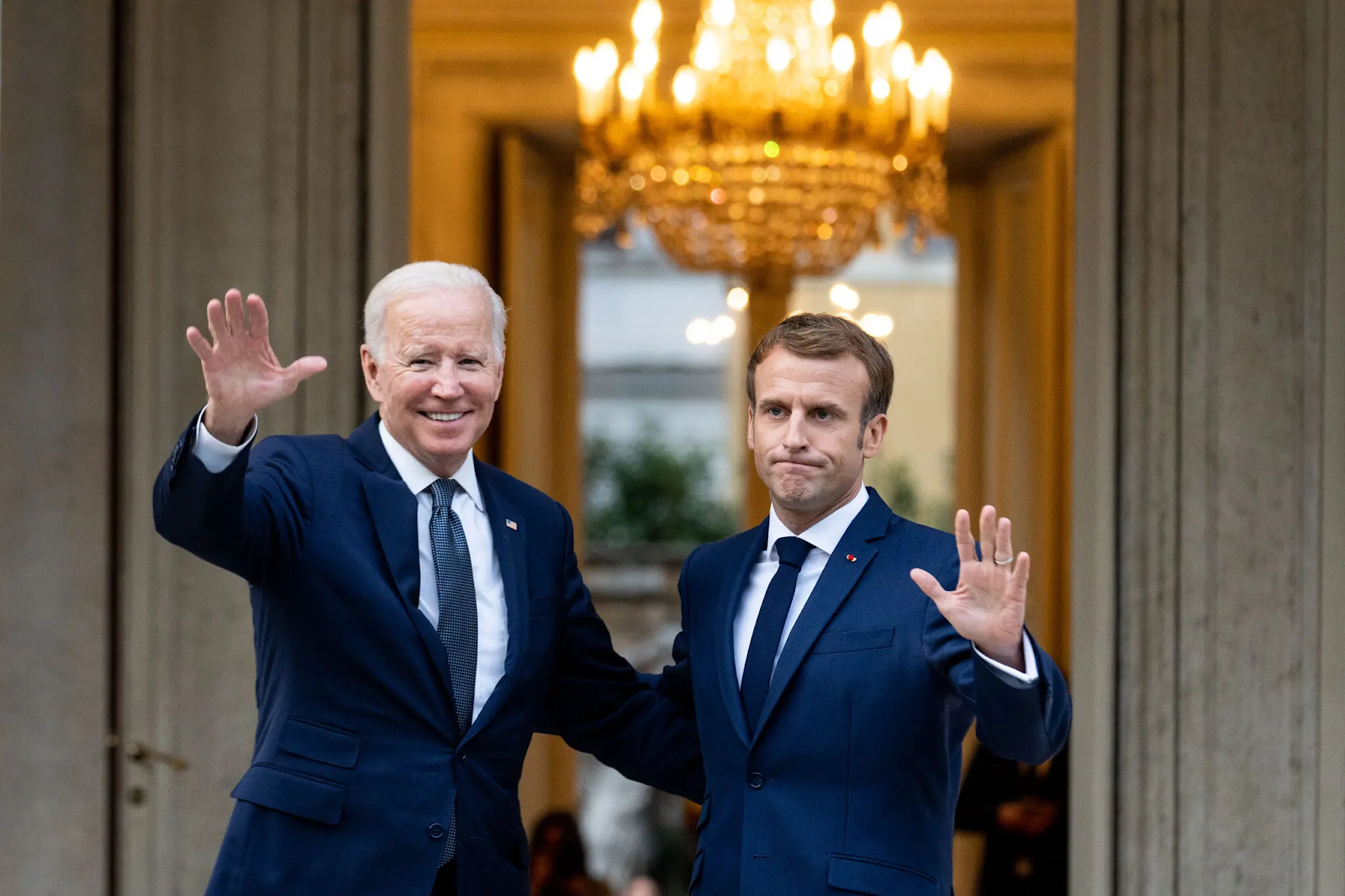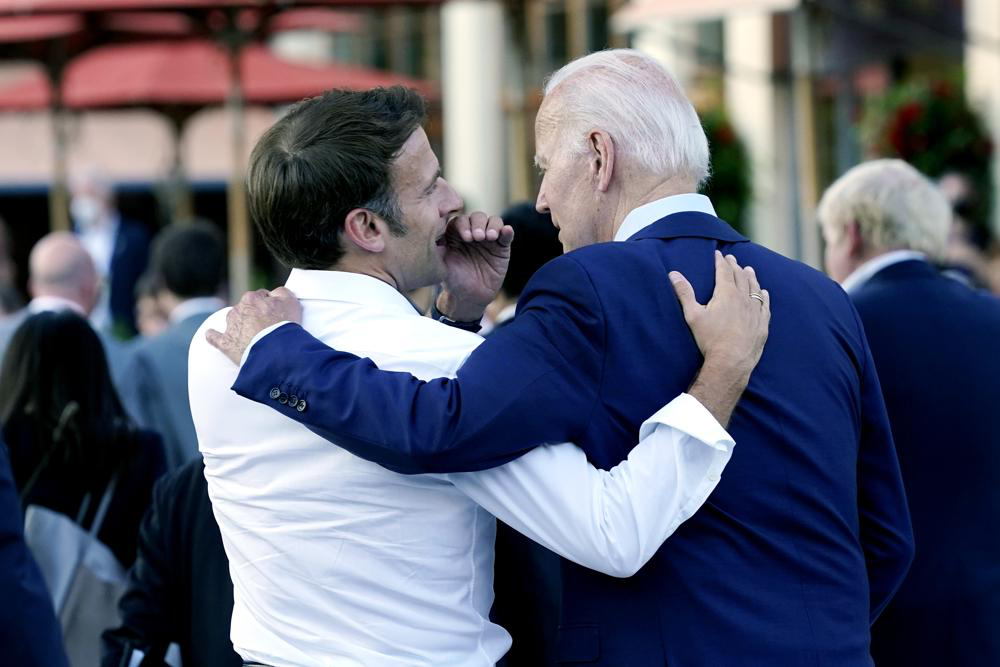US-French Relations Heal After President Macron’s Second State Visit
President Biden and President Macron waving to an audience in Rome, 2021. Source: Erin Schaff/The New York Times
In an attempt to strengthen the alliance between US and France, Biden and Macron attended a meeting in the Oval Office where the main topic of discussion was the war in Ukraine.
This is Biden’s first state visit since becoming president. French President Emmanuel Macron was accompanied by his wife, Brigitte Macron. This is Macron’s second state visit to the White House, a rare privilege, with his first trip occurring in 2018 when President Donald Trump was in office.
France is the US’ oldest ally, and the two nations have had predominantly strong relations. Last year, those relations were put to the test during the US-Australian submarine deal (AUKUS) in which the signatories unexpectedly pushed the French out of a previously agreed-upon, multi-billion dollar defense contract.
Initially, France was to provide Australia with nuclear power submarines. However, Australia opted to sign an agreement with the US and the UK instead, straining France’s relationship with each nation in the process. In response to this incident, Macron recalled the French ambassador to Washington, increasing tensions between the two nations.
Nearly ten months ago, however, Russia declared war on Ukraine, occupying vast swathes of the nation’s territory. Since Russia’s assault on Ukraine, France and the US have set their differences aside and made attempts to mend their alliance in hopes of aiding Ukraine and deterring Russian aggression.
Despite widespread international outcry, and attempts made by the US and its allies to convince Russia to end the war, Russian President President Vladimir Putin has not made any efforts to withdraw his troops from Ukraine.
In a recent joint press conference, Biden stated, “We talked a lot about that in our bilateral meeting, and we’ll continue to strongly support the people of Ukraine as they defend their homes and their families, and their sovereignty and territorial integrity against Russian aggression, which has been incredibly brutal.”
President Macron whispers to President Biden after the G7 Summit in Elmau, Germany on June 26, 2022. Source: AP Photo/Susan Walsh
Both France and the US have taken care to prevent the conflict from spilling over, a possibility that could implicate NATO’s member states in a head-on military conflict with Russia. Both nations have regularly interacted with one another over the past 9 months regarding measures they could potentially take to put an end to the war.
In the same speech on Ukraine, Biden stressed the importance of democracy and assured the audience that both France and the US were passionate about promoting democracy and protecting universal human rights.
Outside of professional relations, Biden shares a close and personal connection with the French president which dates back to Barack Obama’s presidency. Within the same speech, Biden announced, “Emmanuel has also become a friend, as well as President of that great country.”
Macron’s visit extends beyond the subject of Ukraine and also touches upon relations with China and Iran, and Biden’s climate and infrastructure bill, the Inflation Reduction Act. In the course of his 3-day visit, the French president visited NASA headquarters with Vice President Kamala Harris and had the opportunity to meet with US space officials, suggesting a future in space cooperation between both nations.
Biden’s focus on “Made in America” cars have raised concern amongst European officials who believe the initiative will negatively impact European car makers. By encouraging domestic manufacturing, European officials argue, Biden threatens to undercut European imports into the US, a move that could harm suppliers across the continent.
Speaking on Macron’s state visit, Charles Kupchan, senior fellow at the Council of Foreign Relations said, “France has in many respects jumped to the head of the queue and become America’s go-to partner when it comes to advancing transatlantic cooperation. And I think that’s in part because of Macron himself, who leans into Europe’s role in the world and who in comparison with most other European leaders is quite active and quite ambitious.”


